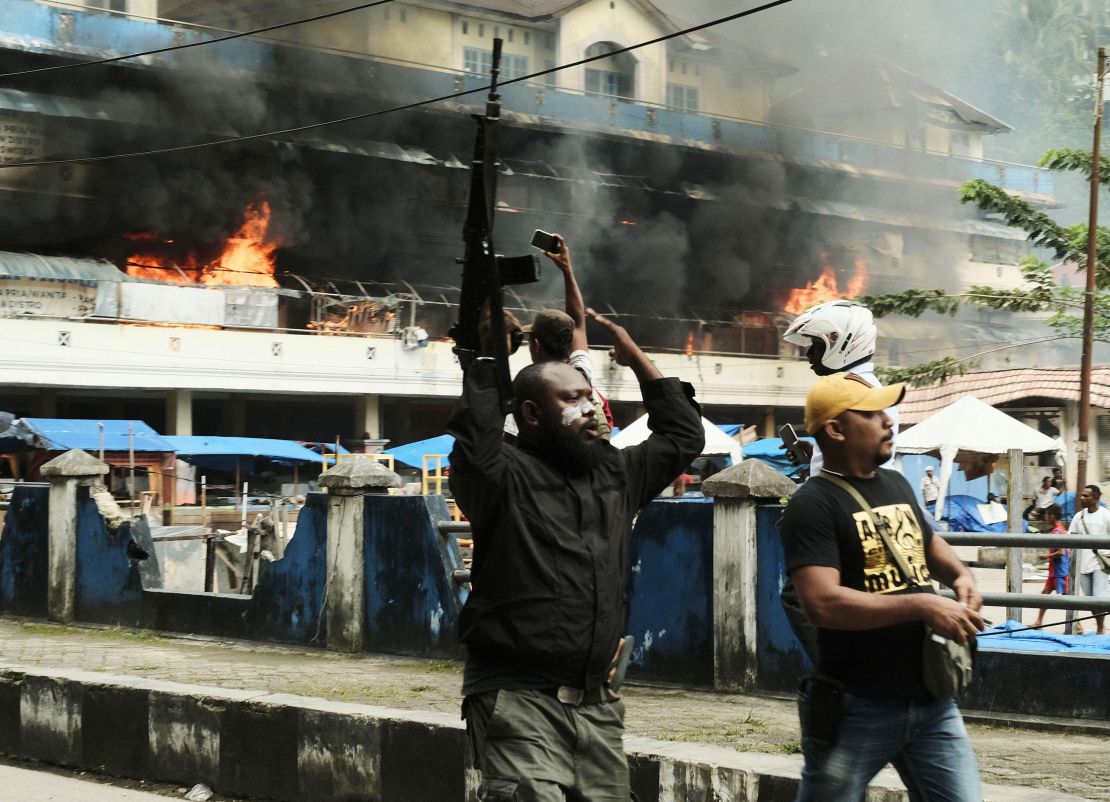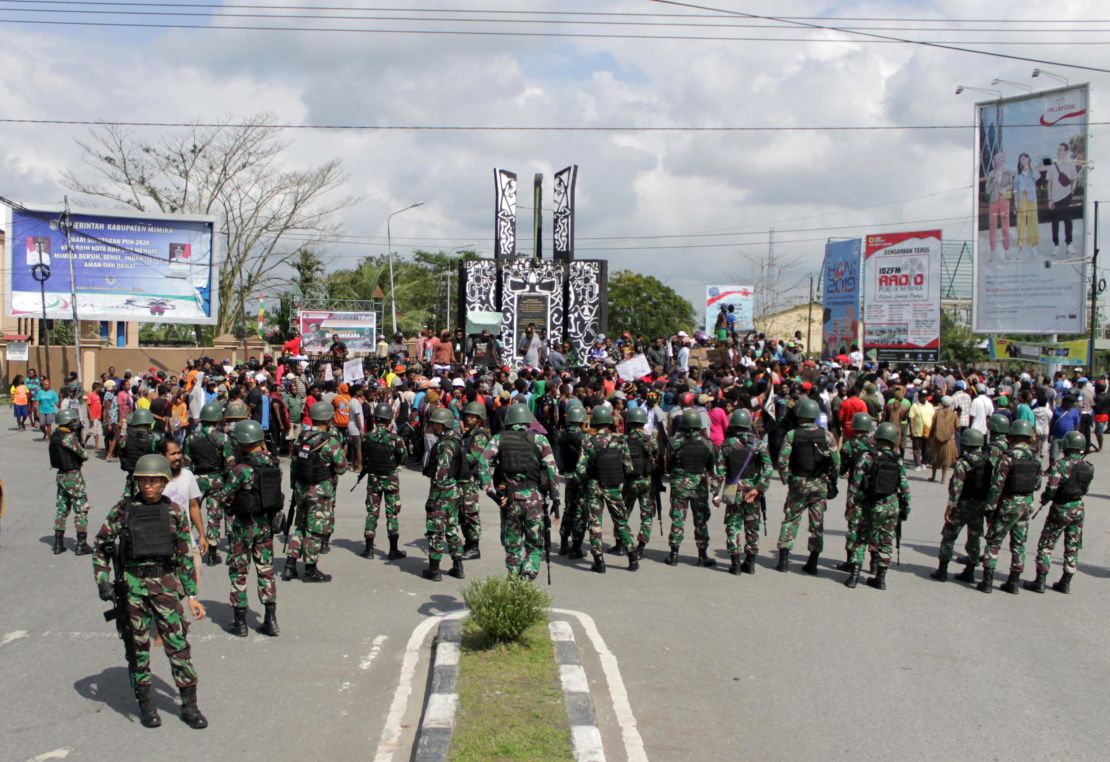Indonesia has sent more than a thousand security personnel to quell protests in the restive provinces of Papua and West Papua, as violence spirals in the region. The protests were sparked by allegations that Indonesian police used excessive force on a group of Papuan students, after they were accused of throwing the country’s flag into a ditch.
On Wednesday, protesters set buildings alight, damaged the local parliament and airport and engaged in pitched battles with police, authorities said. One thousand police personnel from across Indonesia and 100 soldiers from the Indonesian Army have been deployed to stop the unrest.
Six hundred were deployed to Manokwari, the capital of West Papua; 300 to Sorong, the province’s largest city; and 100 to the town of Fakfak, according to West Papua Police spokesman Mathias Krey.
Internet access to the region was also temporarily throttled, according to Indonesia’s communications ministry.
Krey said calm had been restored Thursday and that several people had been detained and were being questioned by police. “People are getting to school, working, traditional market is open and road access is open, people back to their activity,” he said.
Papua and West Papua are home to a long-simmering and occasionally violent separatist movement, but the recent unrest was sparked by events hundreds of miles away in the city of Surabaya, on the island of Java.

On Saturday, during a national holiday marking Indonesia’s independence from Dutch rule, students from Papua were accused of throwing the Indonesian flag into a ditch. A crowd of angry local residents then clashed with the students, according to CNN Indonesia.
Activists say that police who were supposed to calm the situation fired tear gas into a student dormitory, and then arrested 43 Papuan students. They also alleged that police abused them with racist terms.
Police on Monday said they were investigating the use of tear gas and denied that students had been formally arrested. A spokesperson from the East Java Police Department told CNN that the police had brought 43 Papuan students to the police station on Friday to halt the clashes, and that the students were later brought back to the dormitory.
The rapid escalation of the protests underscores the volatility of the region and the tumultuous relationship between roughly four million Papuans and the central Indonesian government.

Papuan activists have long disputed the results of the referendum that led to both provinces becoming part of Indonesia in 1969, during the country’s transition to independence from colonial rule. Only 1,000 people from the local Melanesian population were handpicked to vote in what was called the “Act of Free Choice.”
Activists also say that Indonesia maintains control of the area by force. “West Papua is a militarized zone. People’s everyday life is colored by harassment and intimidation at the hands of security forces,” said Benny Wenda, a Nobel Peace Prize nominee in the UK who leads a global push for rights in Papua.
Wenda also criticized the government’s decision to block internet access, and called on the UN to investigate.
Internet shutdowns have become increasingly common worldwide during periods of unrest, especially in authoritarian countries. Indonesia’s government has said throttling the internet in Papua was meant to stop the spread of misinformation, though critics accuse it of using the tactic to clamp down on dissent.
CNN’s Angus Watson, Jessie Yeung and journalist Masrur Jamaluddin contributed to this report

